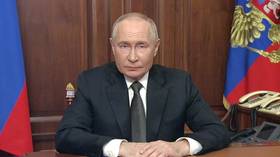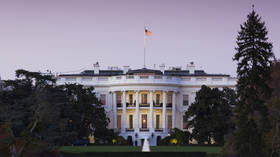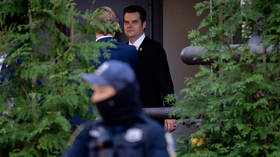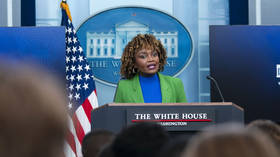Firms in charge of Grenfell Tower refurbishment ‘knew cladding would fail in fire,’ inquiry hears
Companies that carried out refurbishment work on Grenfell Tower knew a whole two years before the disaster that the cladding would fail if exposed to fire, emails disclosed to the public inquiry suggest.
The inquiry – which has entered its second stage – heard on Tuesday how contractors, architects and fire safety consultants responsible for renovating the West London block were aware that the material covering the building was a fire hazard. Seventy-two residents were killed in the tower blaze in July 2017, while hundreds lost their homes.
Also on rt.com ‘Sickening’: UK Labour politician slams rival Lib Dem for suggesting she was partly responsible for Grenfell FireThe tower was built in 1974, but underwent major refurbishments between 2012 and 2016, including the addition of cladding to the building’s exterior. The four firms under scrutiny are Rydon, the main contractor; Harley Facades, its cladding subcontractor; Studio E, the refurbishment architects; and fire safety inspectors Exova. They’ve all delivered opening statements distancing themselves from any blame for the tragedy.
However, an email exchange disclosed during the hearing seemingly contradicts claims that they could not have been aware of any risks.
In an internal Exova email on March 31, a Mr Pearson told a Mr Ashton: “If significant flames are ejected from the windows, this would lead to failure of the cladding system, with the external surface falling away and exposing the cavity, eliminating the potential for unseen fire spread.”
The first phase of the inquiry, which focused on the events of the night of the inferno, heavily criticized the ‘stay put’ advice issued by firefighters responding to the tower block blaze, saying more lives could have been saved if London Fire Brigade had abandoned the policy once it became clear the fire was out of control.
Also on rt.com Grenfell Tower fire errors: Fewer people would have died if fire service's ‘stay-put’ strategy had been called offThink your friends would be interested? Share this story!













